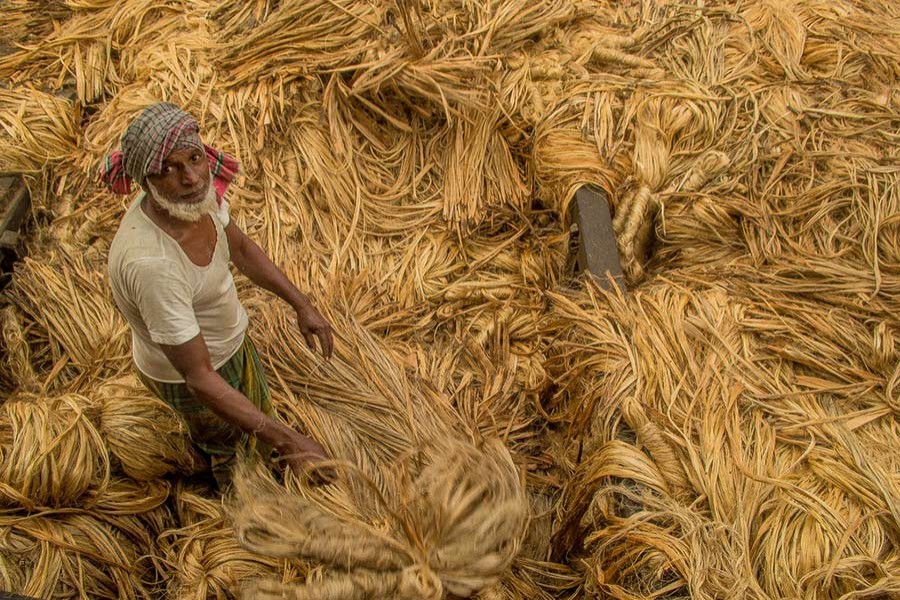The government is set to prepare draft rules of Jute Act 2017 incorporating some provisions, including providing licence for charcoal export, officials said.
Under the move, the ministry of textiles and jute (MoTJ) has directed the department of jute (DoJ) to prepare the draft rules shortly.
"We have formed a seven-member committee to formulate draft rules of Jute Act 2017," director general (DG) of DoJ Md Shamsul Alam told the FE.
The section 28 of the Jute Act -2017 gives the government the authority to prepare rules for implementing it.
At present, jute-related activities/trade is now being controlled under Jute Licensing and Enforcement Rules-1964.
The government has enacted Jute Act-2017 through abolishing Jute Ordinance-1962.
"We will prepare the draft rules as per the provisions of the Jute Act-2017," DoJ director Md Abdul Jalil, who is the convenor of the committee, told the FE.
He said that representatives of Bangladesh Jute Mills Corporation, Jute Diversification Promotion Centre and other stakeholders are the members of the committee responsible for preparing the draft rules of the Jute Act- 2017.
He said that the DoJ will send the draft rules to the MoTJ for taking necessary action.
The MoTJ will issue a circular regarding the rules after vetting by the ministry of law, justice and parliamentary affairs.
Some smart and promising entrepreneurs in the country have begun burning the jute sticks in certain temperature to convert them into carbon (charcoal) which is widely used in battery, cosmetics, computer ink or carbon paper -- and exporting it to China.
Bangladesh has a good prospect to export charcoal/carbon to China. At present, a few number of traders export charcoal, but the government doesn't get any revenue from the exporters.
Once it (charcoal export) is incorporated in the rules, the government will get licence fees and revenue from the export of charcoal.


